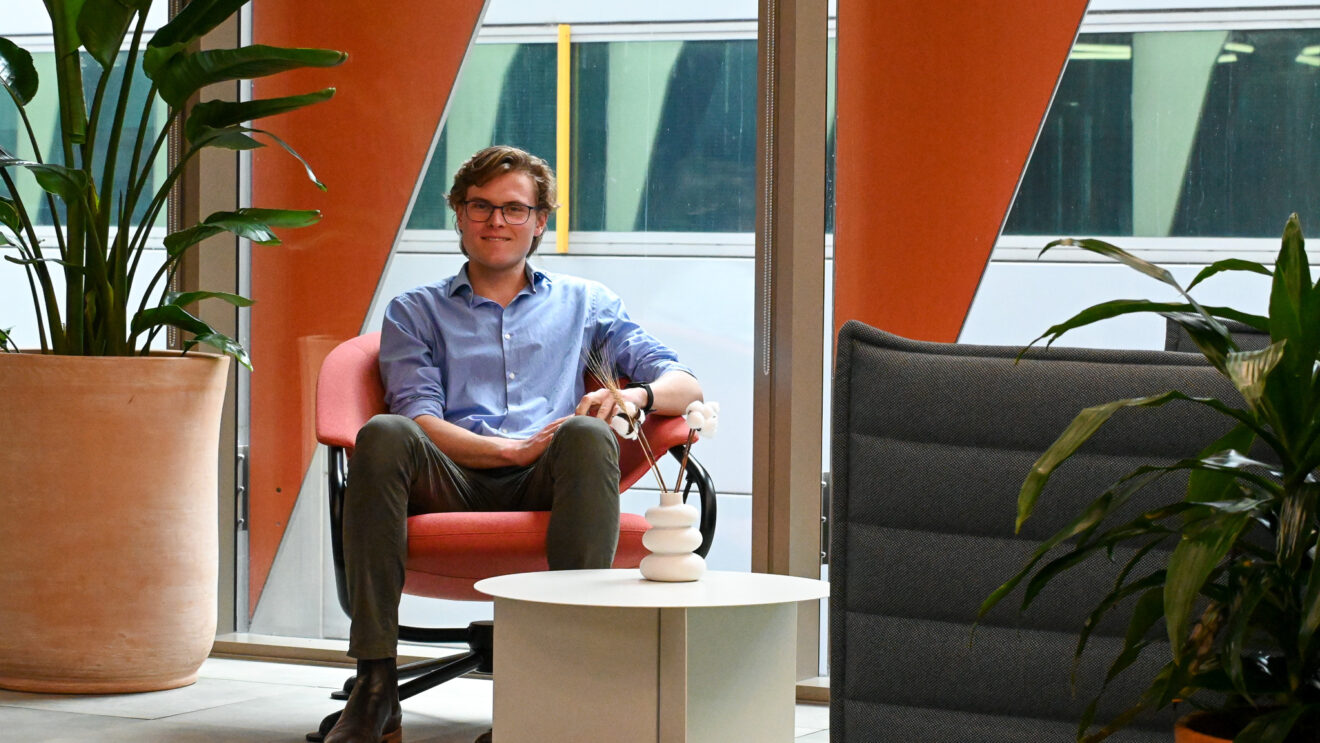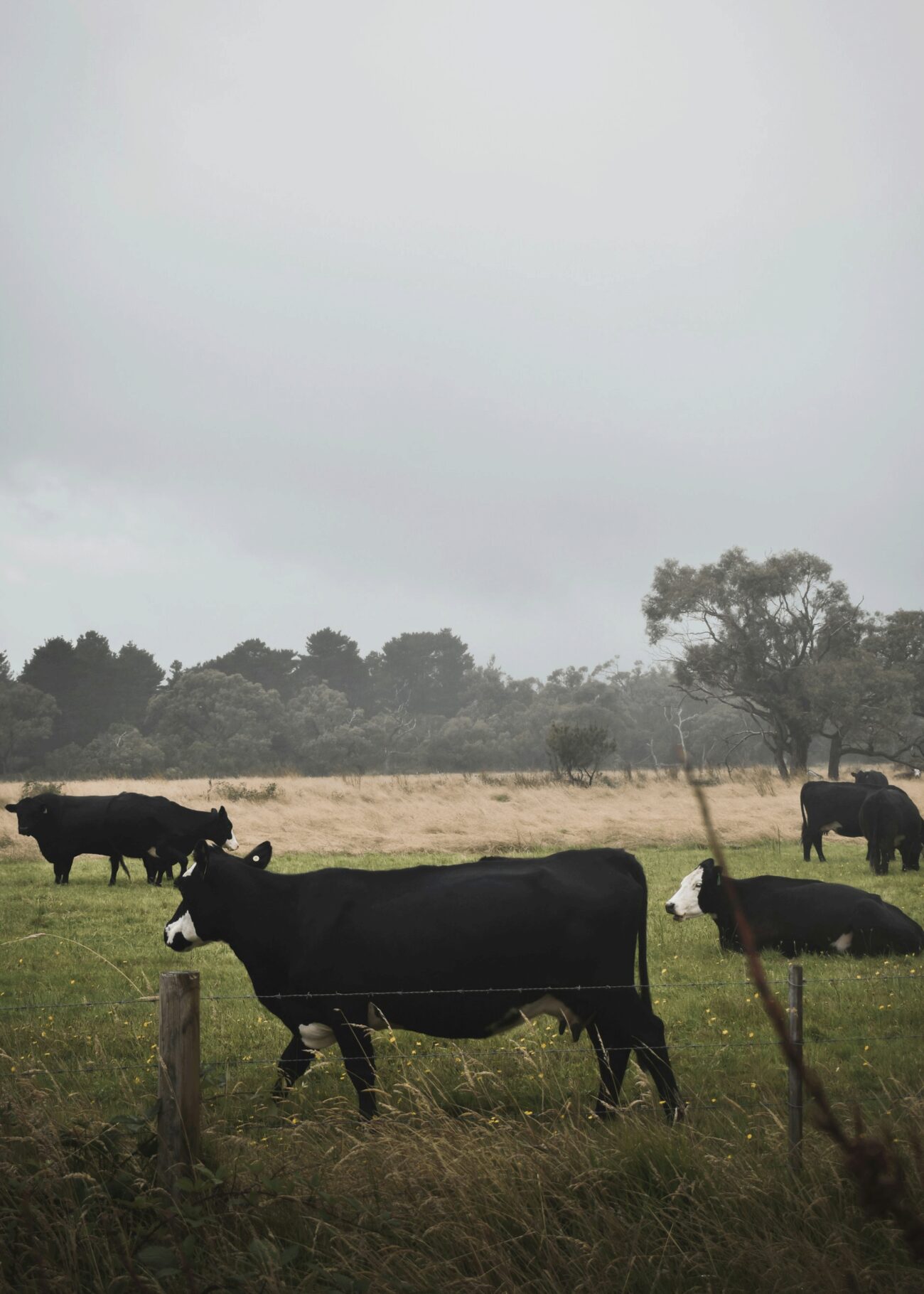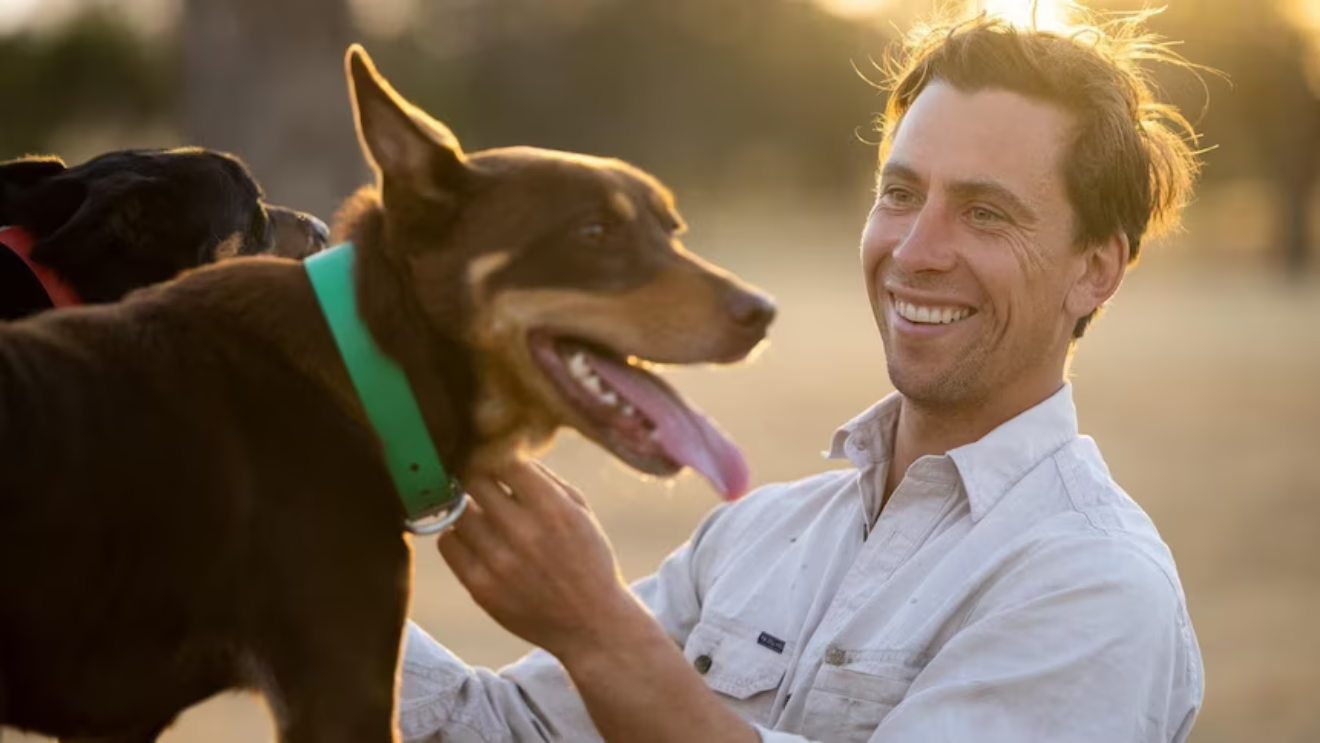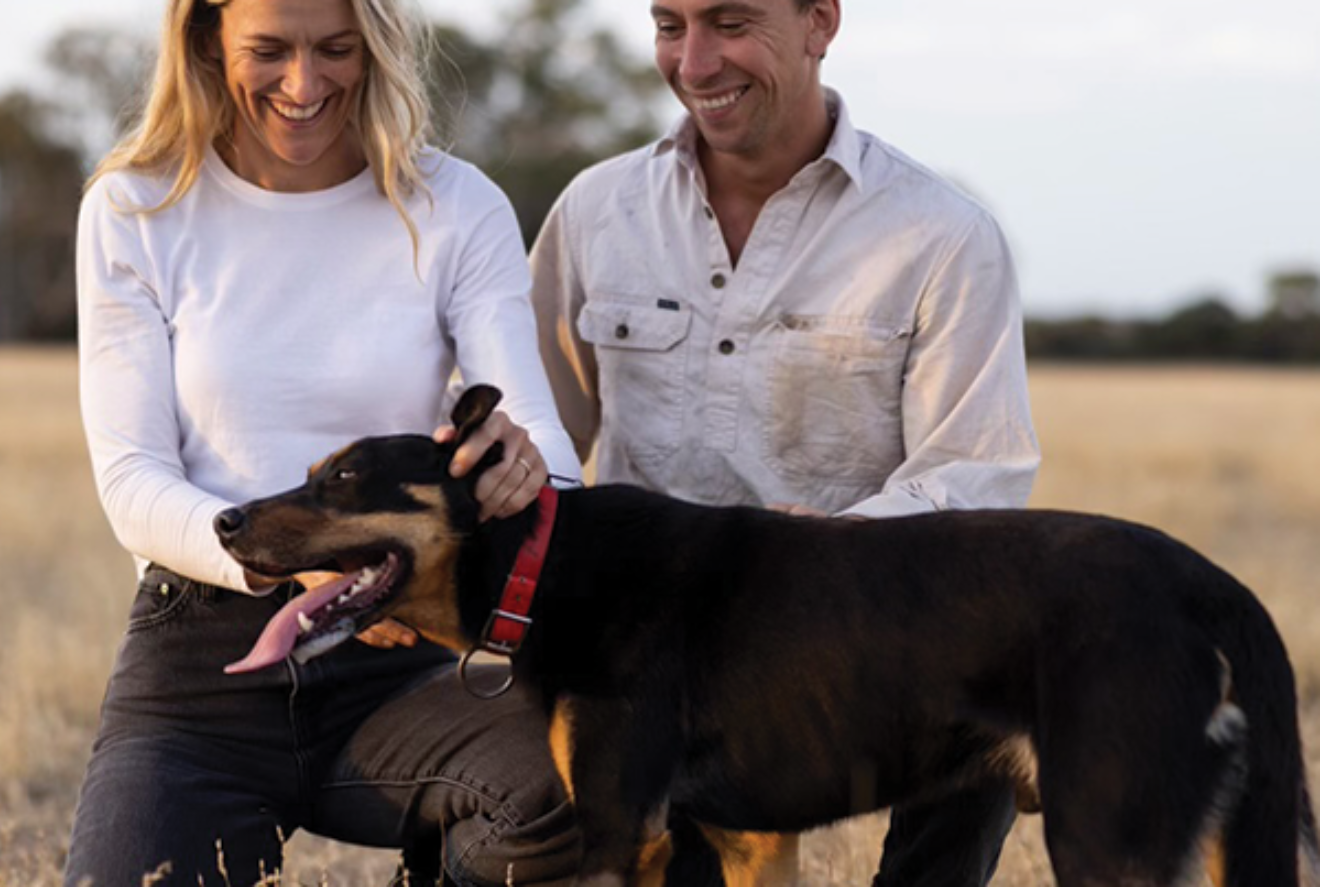

Raised in regional Queensland and Northern New South Wales during the severe millennial drought, Paul Stark developed a deep commitment to addressing climate change early in life. With farming grandparents and a strong sense of duty to help reduce the impact of climate change on the people and landscapes he cherished, he pursued a climate law degree at university and immediately immersed himself in his work with Farmers for Climate Action after graduating.
Now serving as the Climate Actions Policy and Farmer Engagement Lead at Farmers for Climate Action, Paul works directly with farmers across Australia, ensuring they are included in national climate policy discussions. We sat down with Paul at Melbourne Connect — the new home of Farmers for Climate Action — to hear more about the advocacy work they are doing to give a voice to regional and rural Australian farmers.

Hi Paul, thanks for taking the time to speak with us. Can you tell me a bit about what led you to work for Farmers for Climate Action?
At university I studied law and international relations and majored in climate law, I'm from Toowoomba in Queensland and grew up on a family farm in the Northern Rivers area of New South Wales, my grandad was also a farmer, so I’ve always had that connection to agriculture and Farmers for Climate Action felt like a natural fit for me.
What made you want to focus on climate law in your studies?
While I was growing up the millennial drought was at the forefront of everyone's mind, particularly on the outskirts of Toowoomba. The ongoing bushfires, floods, and other natural disasters pushed me to learn more about the climate. When I was in year 12 I began to gain a better understanding of climate change and at university it was at the forefront of my mind.
Can you tell us a bit about Farmers for Climate Action. What is it and what's the mission behind it?
We're a member based organisation, and a registered not for profit charity. We represent over 8200 farmers who are passionate about climate action and want to see their voices represented in the debate around climate change and the transition away from fossil fuels.
Our mission is to have farmers championing climate action and to influence politicians, governments and industry to take action on climate change. Our members know that deep emission cuts are needed for a prosperous future so that farmers can continue farming successfully.
Tell us a bit about how Farmers for Climate Action came into existence?
In 2015 there was a meeting in the Blue Mountains. 30 farmers got together to discuss what they wanted. The agriculture sector wanted to be represented in the climate change conversation and there was discussion about how they could go about that.
These 30 farmers all signed a letter, and those farmers were the origin of the organisation. From then we've grown from those 30 farmers to over 8000 farmers. It started because those original farmers felt that their voices weren't being heard in the discussion around climate action and the need for climate action. The traditional agriculture industry groups weren't really meeting their expectations on sustainability and climate action. So they decided to do something about it.
How has that growth come about from the initial 30 to the now 8000 members?
It's come about because there's a lot more farmers than people realise that care about climate action. They're at the forefront of it, and they're experiencing some of the impacts most regularly, so they can see the trends.

Over the last ten years a lot more people have begun to care about climate action, I think some of the younger generations have gone off to school or university and have probably influenced some of those older generations to care more about the future. A lot of farmers do care about the environment, and they care about continuing their family farms.
Can you tell us how the Farmers for Climate Action ecosystem works?
We're a small team, there's only about six of us. So we have policy work, advocacy, and education as our key business pillars. We regularly engage with our members through surveys, calls, emails — whatever means necessary — to discuss what they see as the priorities for climate action and what they see happening in their communities all across Australia. We're a national organisation with members all over Australia and we champion those actions that they're taking, whether that be regenerative agriculture, a shift to renewable energy or other types of actions. We listen to their concerns and we engage with the government as well.
We have good relationships with all the government departments, state agriculture departments and federal department ministers and we really engage with them to deliver what those farmers want and allow their voices to be heard. We also do regular submissions to the government on things such as the net zero executive plan. Natalie, our CEO, and I were at the Sustainable Agriculture Summit in Toowoomba earlier in the year and summits like that allow us to engage with the government. We're also a member of the National Farmers Federation, so we attend their committee meetings and allow our members to have a voice there.
What’s the working relationship like between Farmers for Climate Action and groups such as the National Farmers Federation?
For us, our mission is very clear. We're seeking deep emissions cuts and we represent farmers on climate action. The National Farmers Federation (NFF) has a lot of other areas to cover, a lot of other policy and industry issues. Which means that they have to listen to all the voices, and we have a really good working relationship with NFF. We respect them as an organisation, we engage with them as peers in the agriculture industry to try to make our farmers’ voices heard.
Is there a trend amongst your members as to what type of farming they undertake, whether that be cattle, grains, citrus or something else completely?
The types of farming operations amongst our members seem to be split pretty much in line with the commodity and market size in Australia. So we have quite a large number of beef producers, but we also have sheep graziers and other farmers from across the whole commodity spectrum. We have some aquaculture, viticulture, and some apiaries. There are a large number of cattle graziers in the Australian market and that’s definitely reflected amongst our member base.
That’s interesting to hear, because cattle farming has traditionally been heavily associated with land clearing which results in increased climate change.
There's a lot of action taken by the farmers nowadays to regenerate and care for the land a lot more than what's been done in the past. Some of those traditional agricultural practices, such as thinking that we need to clear land for grass, have sort of fallen to the wayside a bit. There is an understanding that you need to keep trees and have good biodiversity in order to thrive.

How do you think your personal history of being immersed in agriculture has helped in your current role?
I don't seem to notice it too much, but other people have said that having that instinctual level of insight and understanding gives you a lot more ability to communicate and comprehend things that relate to agriculture. It gives you a good perspective into how farmers think and what they care about. Most of our staff have a connection to agriculture one way or another, and it's important that when you're representing farmers, you understand them and their industry.
What could people in the metro regions and the big cities be doing to help further the mission of Farmers for Climate Action?
There are not really any hard and fast rules, but things such as supporting local Aussie farmers is always a good start, that means understanding where your food comes from. I think people have, over the last few years, probably had a bit more experience with some of the supply chain issues that arose during Covid. Most people in Australia had probably never seen empty shelves before Covid-19, but even in the cities now you still have products that aren't there. I think understanding where your food comes from is really important, and understanding the challenges faced by farmers to get that food from the farm to metropolitan areas is also important.
What are some of the steps that your members are taking to try and advocate for climate change action on the ground in their own communities?
Being present in the local community, speaking to the media about climate action and what farmers want is helping to bring that rural voice out. Something that we do is offer our members free media training so that they can have their voices heard in the media and be confident in how they project their message. A lot of our farmers also display farm gate signs that just let people know that they’re a farmer that supports climate action.
Renewable energy is one of those big ones that farmers have a lot of opportunity for. That doesn’t necessarily mean they are building solar farms, but things such as increasing the efficiency of their operations by having solar power, solar pumps, solar irrigators, wind turbines. On farm power usage coming from renewables is a huge opportunity. Regenerative agriculture is another one, understanding your soil and rotating cattle quite often between paddocks to allow that land to regenerate. A lot of farmers now do quite extensive surveys into what their soil profile is like and how much carbon and nitrogen is in the soil. They try to optimise their soil for whatever commodity they might be growing.
There are tons of things that farmers are implementing and we try to showcase those. On our website there's a section titled Farmers in Focus, and that section showcases what our members are doing and how they're trying to take action on climate change.

What's that knowledge sharing like between your team and the individual growers or graziers?
It's massive, and it goes both ways. We run webinars and we try to get farmers’ perspectives. For example we did one earlier in the year about on-farm power and we had someone join from a dairy farm south of Sydney in Kiama who spoke about what they'd done to their farm and shared their knowledge. We also bring in experts from different industries to talk about the new and emerging technologies such as on-farm power, risk management, things like that. So it goes both ways, and we do try to provide a lot of educational support.
If there are farmers that want to get involved that currently aren’t, what’s the best way for them to go about doing that?
They can join on our website, farmersforclimateaction.org.au — It's free to join and once you join there are no costs. If anyone's interested in understanding new climate smart farming practices and technologies we also have our climate smart farming toolkit available on our website. It's easy to access, and easy to search through and is a great resource for anyone looking to introduce some climate smart policies to their farming operations.
Why has Farmers for Climate Action chosen Melbourne Connect as a home base for their operations?
I think because there's a few other companies at Melbourne Connect that operate in the agricultural space, for example Rocket Seeder. It's in the heart of the startup precinct and also a good opportunity to be close to the city.
Thanks very much for your time, Paul, it's been great to learn more about Farmers for Climate Action and we can't wait to work with you across the precinct.